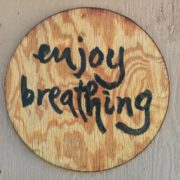5 Intention-setting Ideas to Expand Our Capacity for Self-Compassion
Although the holidays bring visions of family coming together, these images may not always bring the joy presumed by the presentations. Many of us struggle to create an accepting and caring environment when we ourselves did not receive such acceptance and caring as we grew up. Add the stress of trying to plan “the perfect” meal and buy “the perfect” gifts for everyone and we are setting ourselves up for frustration, failure, and ultimately suffering.
How can we stop this vicious cycle? We can learn to give ourselves that acceptance and caring during the holidays and all year long! Cultivating self-compassion has been shown to be the answer for such suffering. And, although the concept of compassion might be foreign, it is possible to develop it no matter how old we are.
Below, please find five intention-setting ideas to start you on the journey of self-compassion:
- Picture yourself as a child. In fact, if it is available to you, find a picture of yourself when you were little and place it near your computer or somewhere else where you will see it every day. If you don’t have any pictures, close your eyes and try to remember a time when you were young, maybe at school. Visualize what it might look like to provide care and demonstrate acceptance to that version of yourself. What did you long to hear from the adults around you at that time? Maybe you could offer some words such as “You are perfect just the way you are.” or “I love you no matter what” or “You are so smart” or “You are so good”. Make time each day to offer this care to yourself, perhaps when you look at your picture or when you see yourself in the mirror.
- Forgive yourself. The next time you catch yourself beating yourself up for making a mistake, stop for a moment, take a breath, and imagine what it would be like to forgive yourself for being human. Perhaps place a hand on your heart and say something like “I’m sure I’m not the first and/or only person to make this mistake”. You might consider trying this practice with what you might consider a “small” mistake, where no one got hurt and notice the effect it might have on your body and mind. Keep practicing it on those small mistakes for a month and see if the practice gets easier.
- Stop making assumptions! When we lack information, it is a natural tendency to fill in the information based upon our past knowledge and experience. Unfortunately, when we do this we limit ourselves, paving the road toward judgment. If we can catch ourselves making an assumption or judgment about ourselves, we open ourselves up to the unlimited possibilities inherent in choice! Perhaps we need to remind ourselves that the only constant in life is change and we too can learn to choose to release our attachment to assumptions and judgment. Instead, we might spend some time identifying what matters to us – our values in life – and allow them to lead us forward and guide us in our decisions.
- Listen to self-compassion meditations. Our thought patterns can be deep and sometimes we need a little help in rewiring our brains. Consider creating space for yourself (both time and room) to close your eyes and listen to a guided meditation to support the blossoming of the seed of compassion that already exists in your heart. In fact, maybe take a compassion break right now and click this link to a free Loving Kindness meditation offered by UCLA. If not now, set a reminder to listen to it tonight as you climb into bed!
- Try your hand at writing. Dr. Kristen Neff has several writing exercises on her website self-compassion.org that utilize writing as a tool to support our efforts to invite more compassion towards ourselves. Sometimes just writing down the critical, judgmental thoughts about ourselves that occupy our minds helps us get some perspective. Then we can invite curiosity to the table to review what we have written down, creating space to challenge those judgments. We can even write a response to our thoughts as if they were expressed to us by a friend and notice how we might respond differently. Might you consider trying one of these exercises this week?!












Leave a Reply
Want to join the discussion?Feel free to contribute!